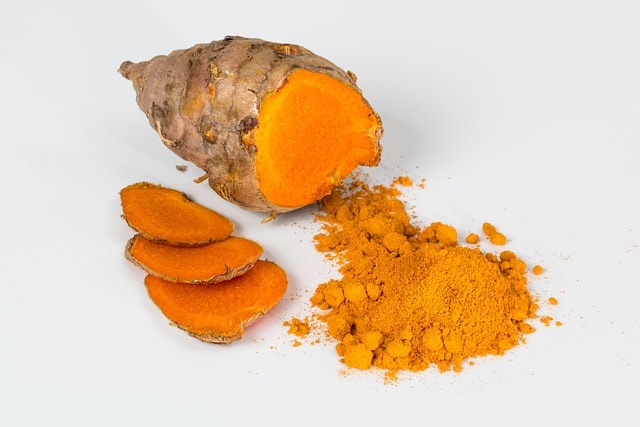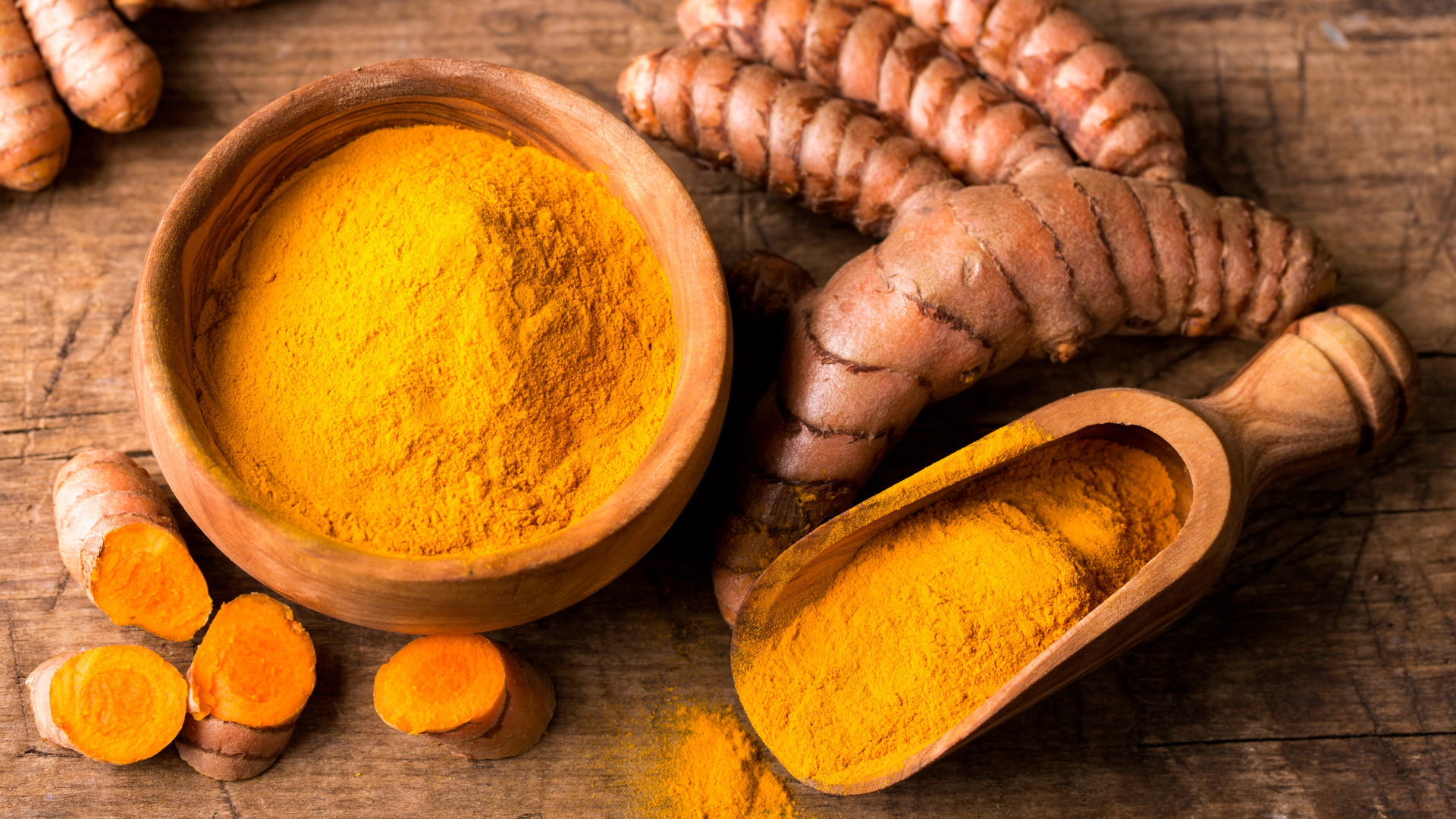Turmeric for Horses: A Miracle Spice for Health and Well-Being
Turmeric - this yellow spice is not only an important ingredient in many kitchens, but has also established itself as a true miracle cure in natural medicine. Turmeric can be a valuable addition to the diet, especially for horses. Its anti-inflammatory and antioxidant properties make it an excellent way to support your horse's health and vitality.
In this detailed article, you will learn everything you need to know about turmeric for horses: what health benefits it offers, how to dose it correctly and how to integrate it into your daily diet.

What is turmeric and why is it valuable for horses?
Turmeric (Curcuma longa) is a plant from the ginger family and originally comes from South Asia. The root extract of the spice, especially the substance curcumin, is known for its healing properties. Curcumin is the main component of turmeric and has anti-inflammatory, antioxidant and pain-relieving effects. These properties make turmeric a valuable aid for many health problems in horses, especially chronic complaints such as joint problems, digestive disorders or general inflammation.
But it is not just the well-known yellow color, but also the health effects of curcumin, which makes up to 5% of the root, that are crucial for the health-promoting effects of turmeric. In modern naturopathy, it is used as an effective aid in the treatment of many ailments - and this also applies to our four-legged friends.
The health benefits for inflammation
Turmeric offers a number of health benefits that can be particularly useful for older horses or those with chronic illnesses. Here are the main positive effects:
1st Anti-inflammatory effect: A blessing for joints and muscles
One of turmeric's greatest strengths is its anti-inflammatory properties. Inflammation in the body is often the cause of pain and limited mobility in horses, especially those with joint and muscle disorders. For horses suffering from arthritis, osteoarthritis or other chronic joint problems , turmeric can help reduce inflammation and improve mobility.
The curcumin in turmeric blocks inflammatory signaling pathways and reduces the production of pro-inflammatory substances in the body. This helps relieve pain and stiffness and supports the healing process in the affected joints.
Especially for older horses or animals that are used intensively in sports, turmeric is a valuable support to relieve the joints and maintain their mobility.
2nd Pain-relieving: A natural pain reliever
In addition to its anti-inflammatory properties, turmeric also has analgesic properties. Horses suffering from joint inflammation or muscle pain often struggle with chronic pain. The analgesic properties of curcumin help to reduce this pain and increase your horse's well-being.
By suppressing the inflammatory processes in the body, the spice also reduces the pain caused by these inflammations.
Horses that receive turmeric regularly may require fewer painkillers because the natural spice offers a gentle and effective way to relieve pain.
3. support of digestion
Another important benefit of turmeric for horses is its effect on the digestive system. It can help stabilize the digestive system and improve nutrient absorption. It stimulates the production of bile, which is necessary for the digestion of fats and the absorption of fat-soluble vitamins.
Horses prone to digestive disorders such as bloat, colic or constipation may benefit from the use of turmeric. It can help promote the overall digestive process and support intestinal health.
Healthy digestion is crucial for your horse's overall health as it has a direct impact on the immune system and well-being.
4th Antioxidant effect: protection against free radicals
Curcumin is also a powerful antioxidant. Antioxidants protect your horse's cells from the damaging effects of free radicals. These free radicals are created by environmental factors, stress or even natural aging processes and can cause cell damage. If they are not neutralized, free radicals can contribute to the development of chronic diseases.
The antioxidant properties of turmeric help fight these harmful free radicals and strengthen your horse's immune system.
Especially for older horses or those that are more prone to disease, the antioxidant protection of turmeric can be crucial.
5th promoting wound healing
Turmeric also has a healing effect that can be particularly beneficial for minor wounds and injuries. It stimulates blood circulation and supports the regeneration of damaged tissue. This promotes the rapid healing of wounds, cuts or abrasions that horses often suffer, especially when they are moving around in the pasture or stable.
By promoting wound healing, turmeric root helps your horse return to normal activity more quickly. It helps strengthen the immune system and reduce inflammation at the wound, which speeds up the healing process.

Turmeric and the Liver Health of Your Horse
The yellow spice can also provide valuable support for your horse’s liver health.
The liver plays a central role in the metabolism and detoxification of the body by filtering toxins and producing important enzymes. The anti-inflammatory and antioxidant properties of turmeric, especially the curcumin it contains, protect the liver from harmful free radicals and promote its ability to regenerate.
Curcumin also stimulates the production of bile, which supports the digestion of fats and the excretion of waste products. The root helps to relieve the liver and optimize its detoxification capacity, especially in horses that are exposed to a lot of stress, environmental toxins or medication.
Turmeric has also been shown to reduce the accumulation of fat in the liver and thus prevent the development of liver diseases such as fatty liver.
It also supports the liver in healing and ensures that it maintains its function, which is crucial for the overall well-being of your horse.
By regularly taking turmeric in combination with a fat source such as linseed or coconut oil, the bioavailability of curcumin can be increased and the liver can thus be protected and strengthened in the long term.
How should turmeric be administered to horses?
The dosage for horses must be carefully observed to ensure the positive effects are achieved. Turmeric in its natural form is not particularly water-soluble, which is why it is advisable to administer it in combination with fat or pepper. Black pepper contains piperine, which improves the absorption of curcumin in the body and increases bioavailability. Therefore, you should always combine turmeric with a source of fat, such as linseed oil or coconut oil.
dosage recommendations
The dosage depends on the horse's body weight. A general recommendation is:
For a horse of 500 kg: About 1-2 teaspoons of turmeric powder per day, which is about 5 to 10 grams.
Turmeric extract: If you use an extract that contains a higher concentration of curcumin, a smaller amount is often sufficient. The dosage depends on the product and should be indicated on the packaging.
It is advisable to increase the dosage slowly to allow the horse's body to get used to the new feed and to detect any intolerances early on. In many cases, it is advisable to seek advice from a veterinarian before starting to feed the horse, especially if your horse has existing health problems.
Integrate into daily feeding
Turmeric can easily be incorporated into your horse's daily feed. You can mix the powder directly into muesli, hay or a feed mixture. Turmeric can also be combined particularly well with other healthy ingredients such as linseed, ginger or psyllium to enhance its effect. These herbs not only support health, but also make the feed more tasty.
Another advantage is that turmeric in combination with other natural herbs often has less taste than chemical feed supplements and is therefore more easily accepted by many horses.
Possible side effects
Although turmeric is generally safe for horses, there are a few things to keep in mind when incorporating it into your horse's diet. Too high doses can cause stomach upset or diarrhea, as turmeric is a strong spice. Therefore, it is important to increase the dosage slowly and observe your horse's reaction.
When should you consult the veterinarian?
Before you regularly incorporate turmeric into your horse's diet, you should consult a veterinarian if your horse has existing health problems or is taking medication. This is especially important to avoid possible interactions or contraindications.
Conclusion: The turmeric root as support for inflammation and for the general health of your horse
Turmeric is an excellent natural remedy that offers many health benefits for your horse due to its anti-inflammatory, pain-relieving and antioxidant properties. Whether to support joints, promote digestion or support wound healing - the diverse positive effects make turmeric a valuable addition to your horse's diet.
If you observe your horse carefully and find the right dosage, it will feel more vital and healthier – in a completely natural way.














